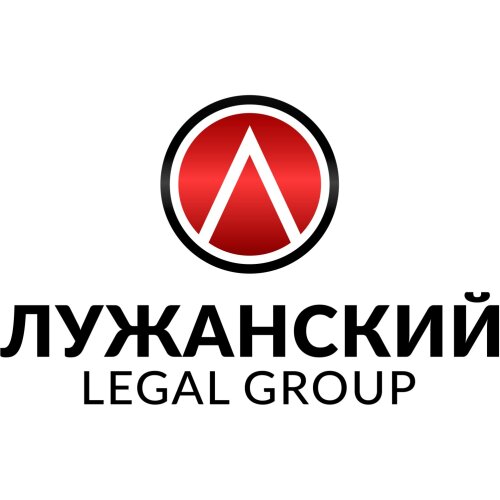Best Collaborative Law Lawyers in Kyrgyzstan
Share your needs with us, get contacted by law firms.
Free. Takes 2 min.
Free Guide to Hiring a Family Lawyer
Or refine your search by selecting a city:
List of the best lawyers in Kyrgyzstan
About Collaborative Law in Kyrgyzstan
Collaborative Law is a method of dispute resolution where parties work together with their lawyers to reach a mutually beneficial agreement. It aims to avoid the need for litigation and foster a cooperative environment for resolving legal issues.
Why You May Need a Lawyer
You may need a lawyer in Collaborative Law to ensure your interests are protected, navigate complex legal processes, and negotiate effectively with the other party. A lawyer can provide valuable advice and representation throughout the collaborative process.
Local Laws Overview
In Kyrgyzstan, Collaborative Law is an emerging field with growing recognition. The Civil Code and Family Code govern collaborative processes related to family matters, such as divorce, child custody, and property division. Understanding these laws is crucial for a successful collaborative resolution.
Frequently Asked Questions
1. What is the difference between Collaborative Law and mediation?
Collaborative Law involves each party being represented by their own lawyer, while mediation usually involves a neutral third party facilitating discussions. Collaborative Law also allows for direct negotiation between parties with legal support.
2. How long does a collaborative process usually take?
The length of a collaborative process varies depending on the complexity of the issues involved and the willingness of both parties to cooperate. It can range from a few months to over a year.
3. Can I still go to court if the collaborative process fails?
If the collaborative process fails to reach an agreement, both parties must hire new lawyers if they decide to take their case to court. The information shared during the collaboration process is usually confidential and cannot be used in court.
4. How much does Collaborative Law cost?
The cost of Collaborative Law can vary depending on the complexity of the issues, the number of meetings required, and the hourly rates of the lawyers involved. It is typically less expensive than litigation but can still be costly.
5. Can Collaborative Law be used for business disputes?
While Collaborative Law is commonly used for family law matters, it can also be utilized for business disputes, contract negotiations, and other civil matters. It promotes cooperation and resolution in any legal context.
6. Is Collaborative Law legally binding in Kyrgyzstan?
Yes, agreements reached through Collaborative Law are legally binding in Kyrgyzstan as long as they meet the requirements of local laws. Both parties must adhere to the terms of the agreement once it is finalized.
7. What are the benefits of using Collaborative Law?
Collaborative Law offers parties more control over the outcome of their dispute, promotes open communication, and preserves relationships. It can be a cost-effective and efficient alternative to traditional litigation.
8. Can I use Collaborative Law if there is a history of abuse or power imbalance?
If there is a history of abuse or power imbalance between parties, Collaborative Law may not be appropriate. In such cases, seeking alternative dispute resolution methods or court intervention may be necessary to ensure safety and fairness.
9. How do I find a Collaborative Law practitioner in Kyrgyzstan?
You can search for Collaborative Law practitioners through legal directories, professional associations, or referrals from other lawyers. It is important to choose a lawyer with experience in Collaborative Law and a good reputation.
10. Can I start the collaborative process without a lawyer?
While it is possible to start the collaborative process without a lawyer, having legal representation is highly recommended. A lawyer can provide guidance, protection, and strategic advice to help you achieve a favorable outcome.
Additional Resources
For more information on Collaborative Law in Kyrgyzstan, you can contact the Kyrgyzstan Bar Association or the Kyrgyz Ministry of Justice. These organizations can provide guidance, referrals, and resources related to Collaborative Law practice in the country.
Next Steps
If you require legal assistance in Collaborative Law in Kyrgyzstan, it is recommended to schedule a consultation with a qualified lawyer. During the consultation, you can discuss your case, explore your options, and determine the best course of action to resolve your legal issues collaboratively.
Lawzana helps you find the best lawyers and law firms in Kyrgyzstan through a curated and pre-screened list of qualified legal professionals. Our platform offers rankings and detailed profiles of attorneys and law firms, allowing you to compare based on practice areas, including Collaborative Law, experience, and client feedback.
Each profile includes a description of the firm's areas of practice, client reviews, team members and partners, year of establishment, spoken languages, office locations, contact information, social media presence, and any published articles or resources. Most firms on our platform speak English and are experienced in both local and international legal matters.
Get a quote from top-rated law firms in Kyrgyzstan — quickly, securely, and without unnecessary hassle.
Disclaimer:
The information provided on this page is for general informational purposes only and does not constitute legal advice. While we strive to ensure the accuracy and relevance of the content, legal information may change over time, and interpretations of the law can vary. You should always consult with a qualified legal professional for advice specific to your situation.
We disclaim all liability for actions taken or not taken based on the content of this page. If you believe any information is incorrect or outdated, please contact us, and we will review and update it where appropriate.
Browse collaborative law law firms by city in Kyrgyzstan
Refine your search by selecting a city.









